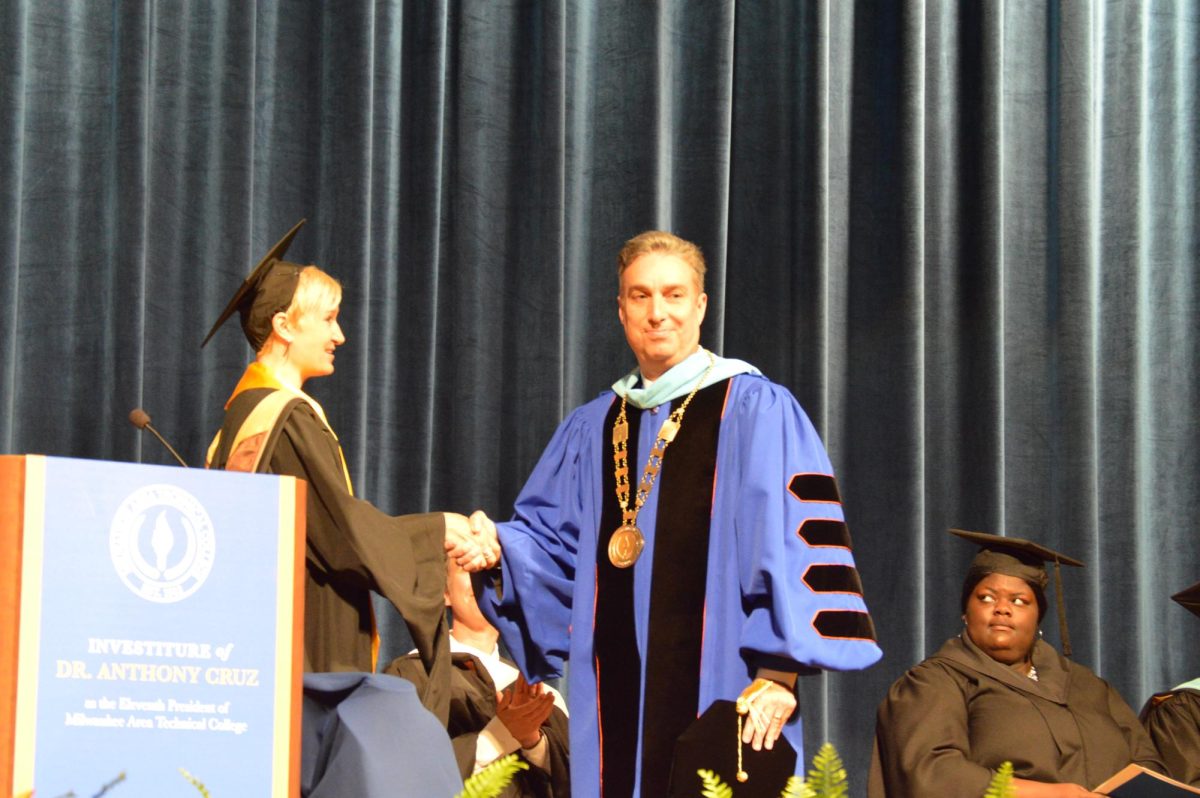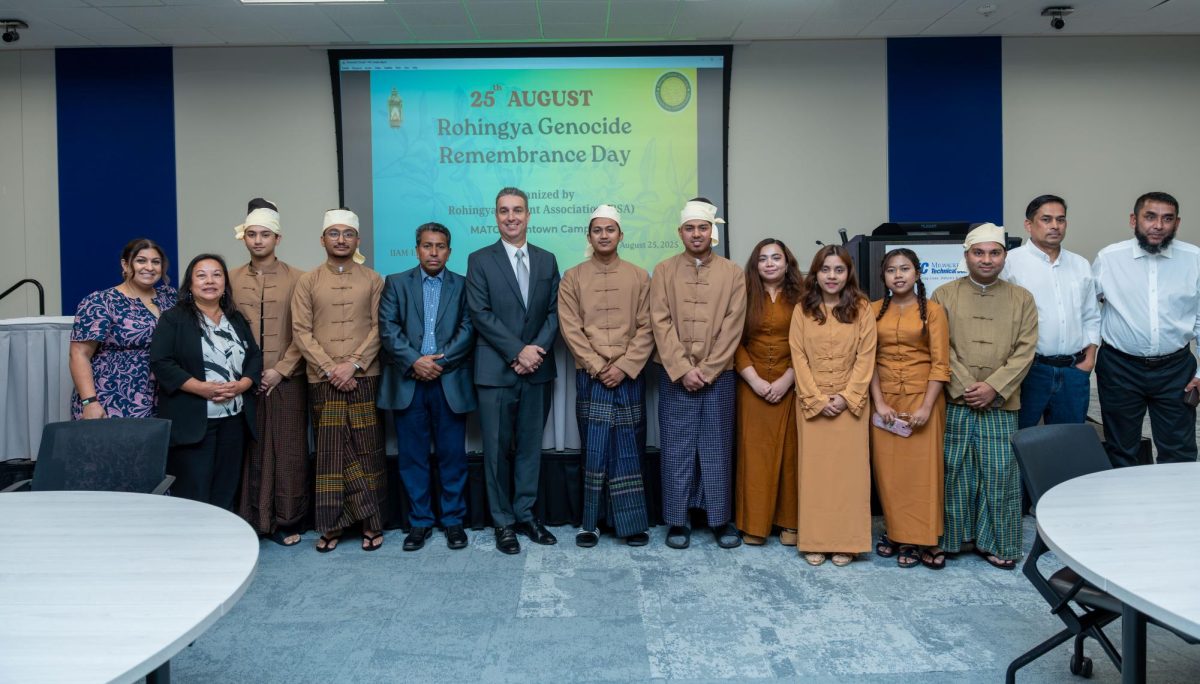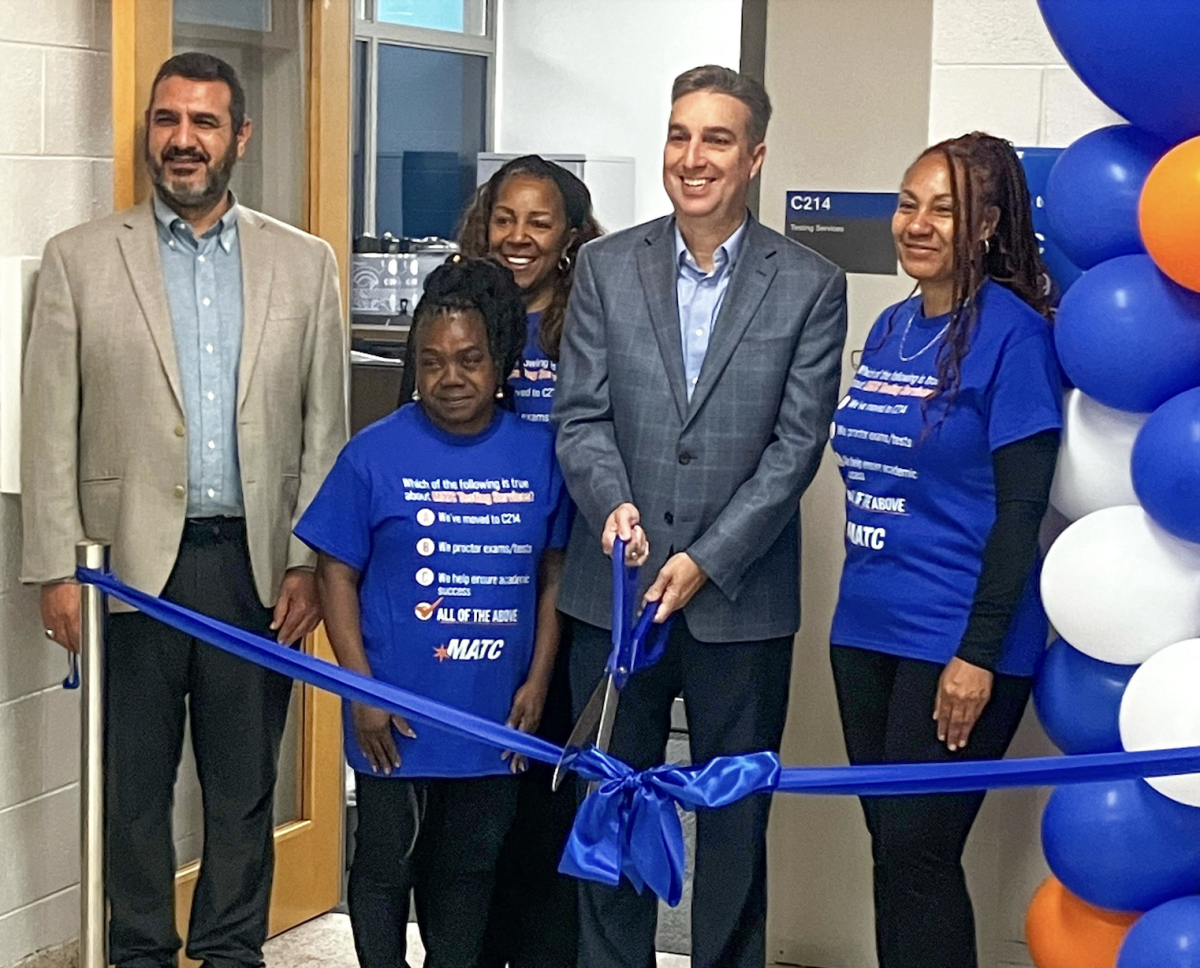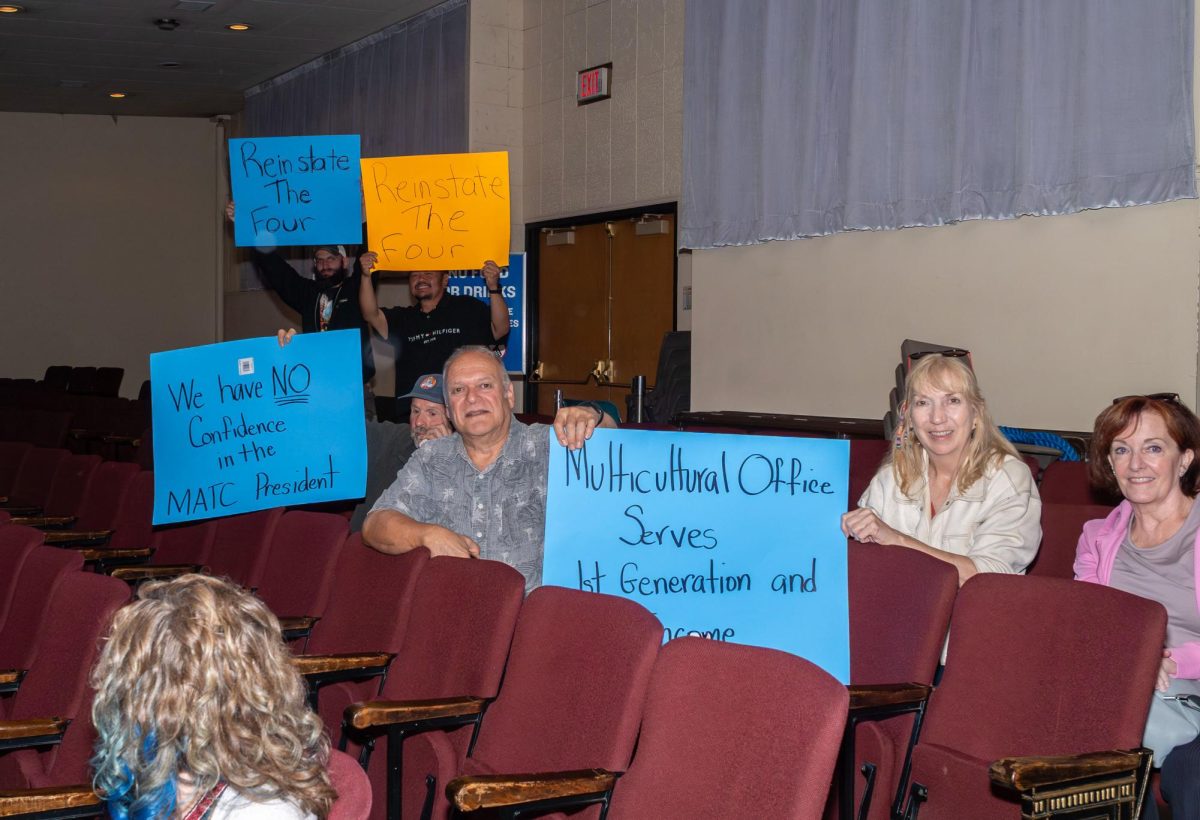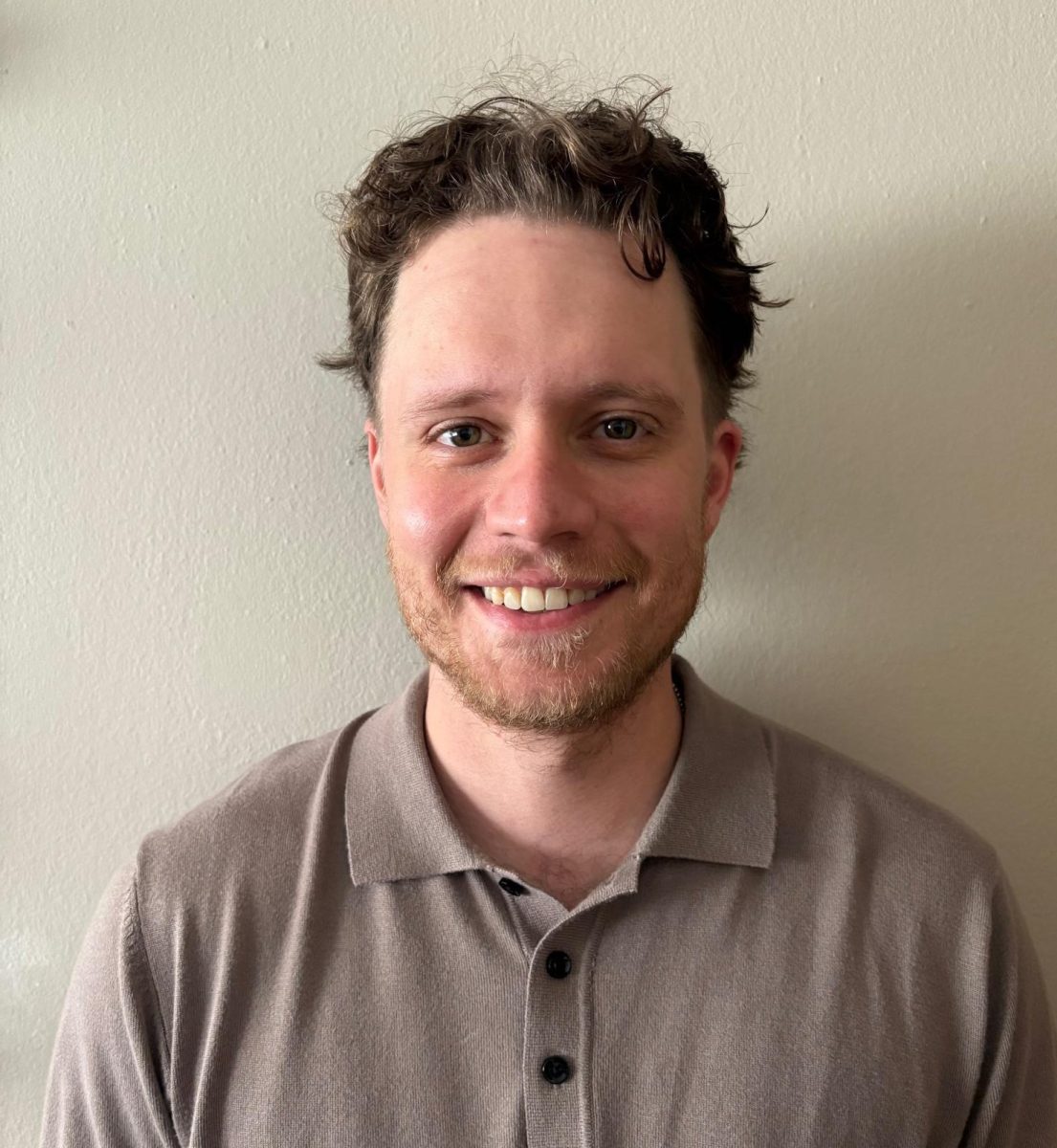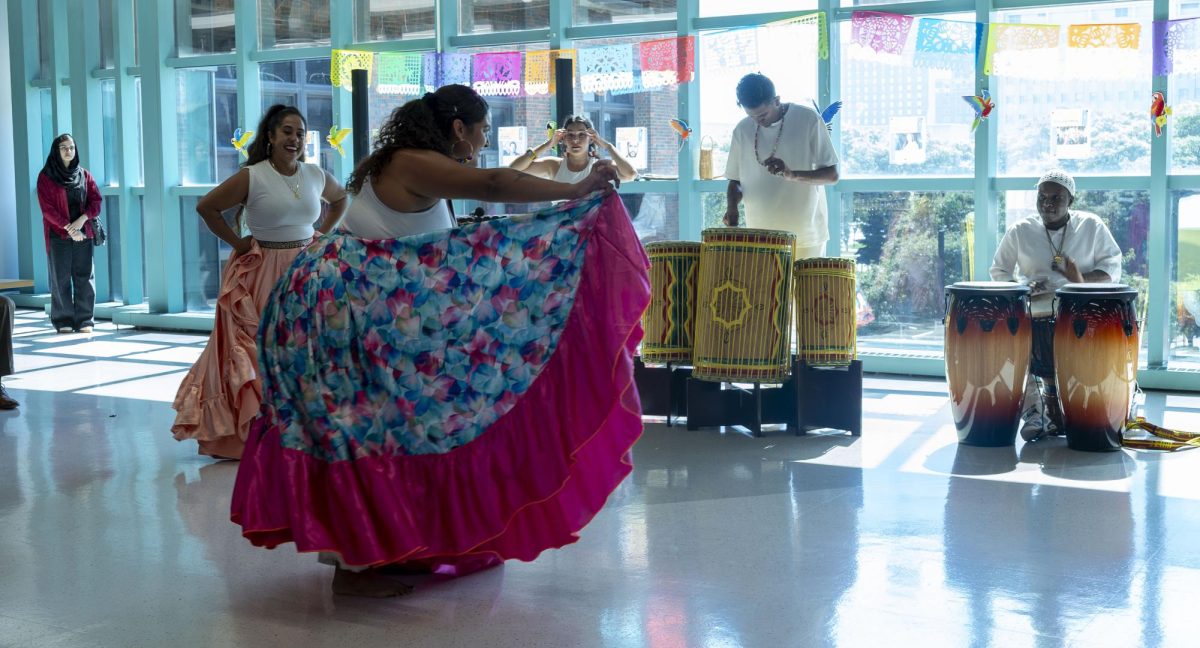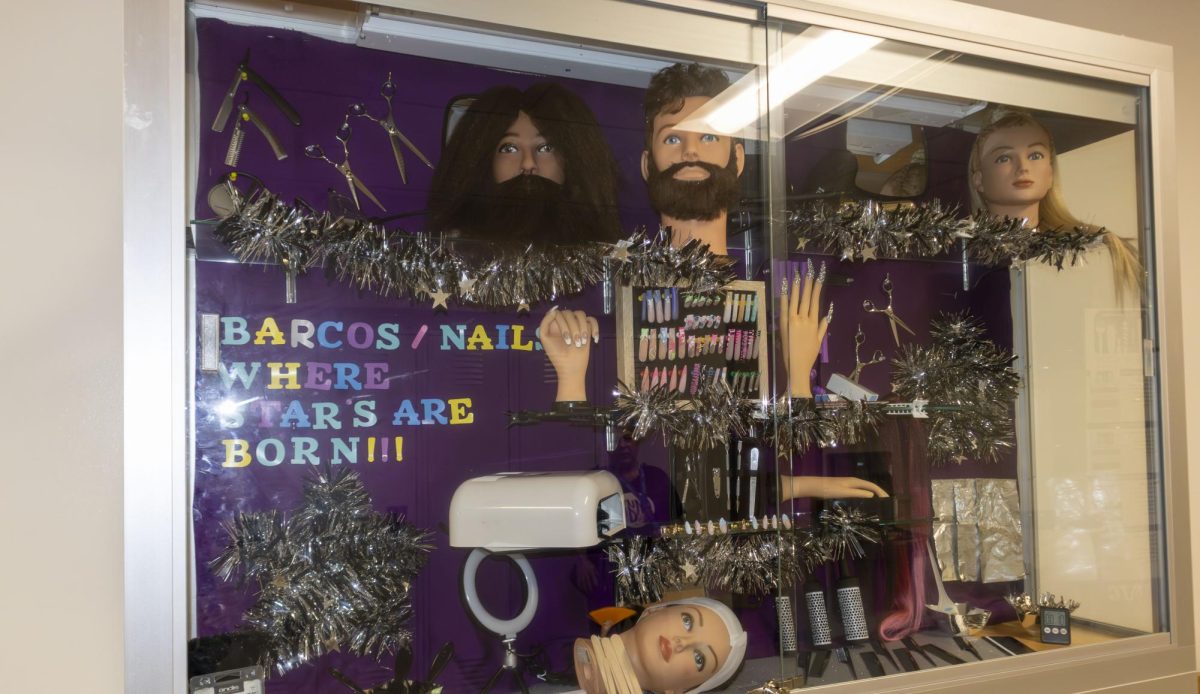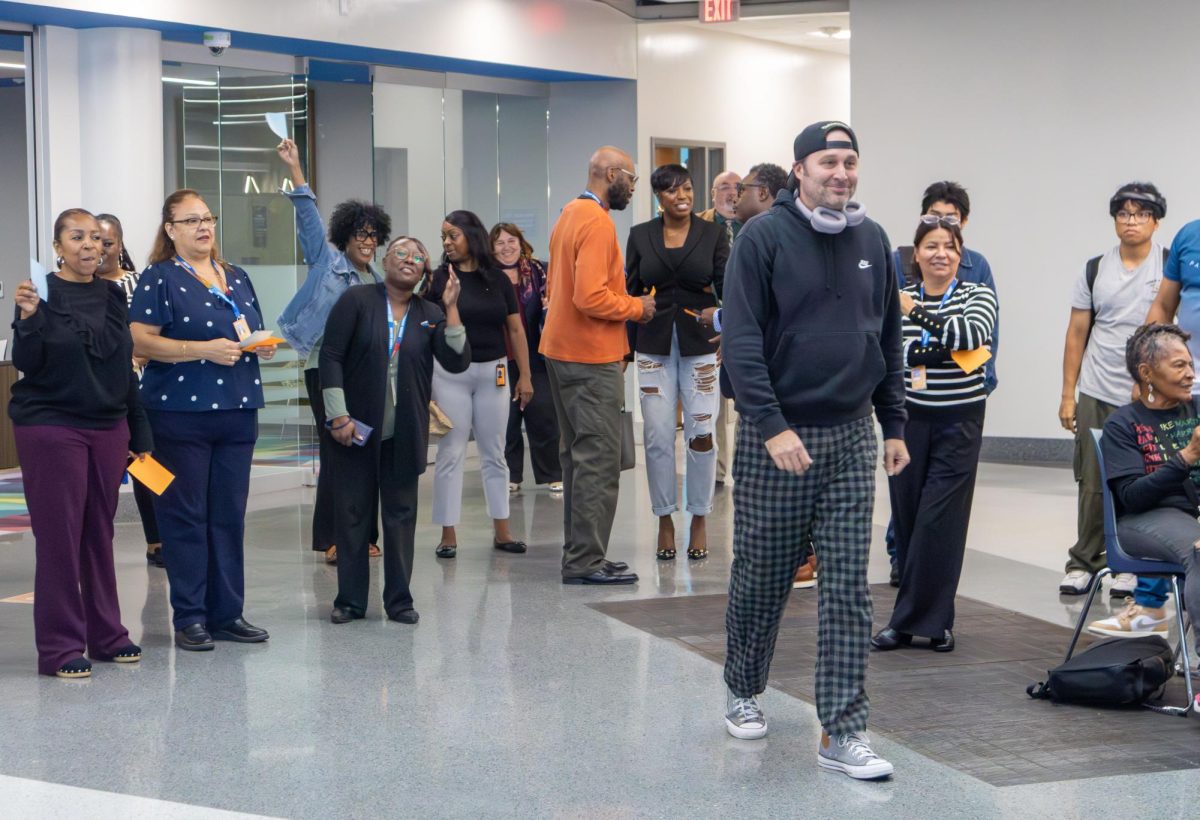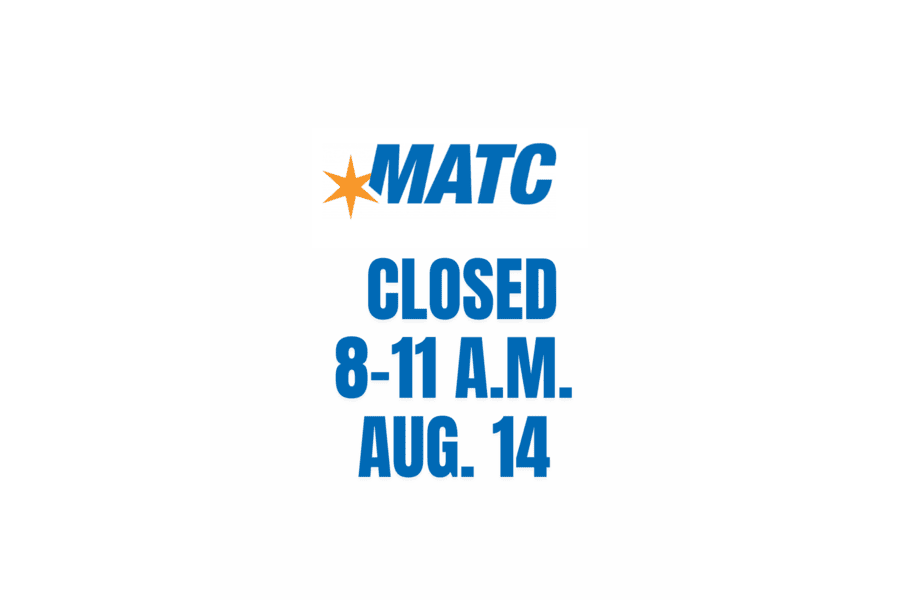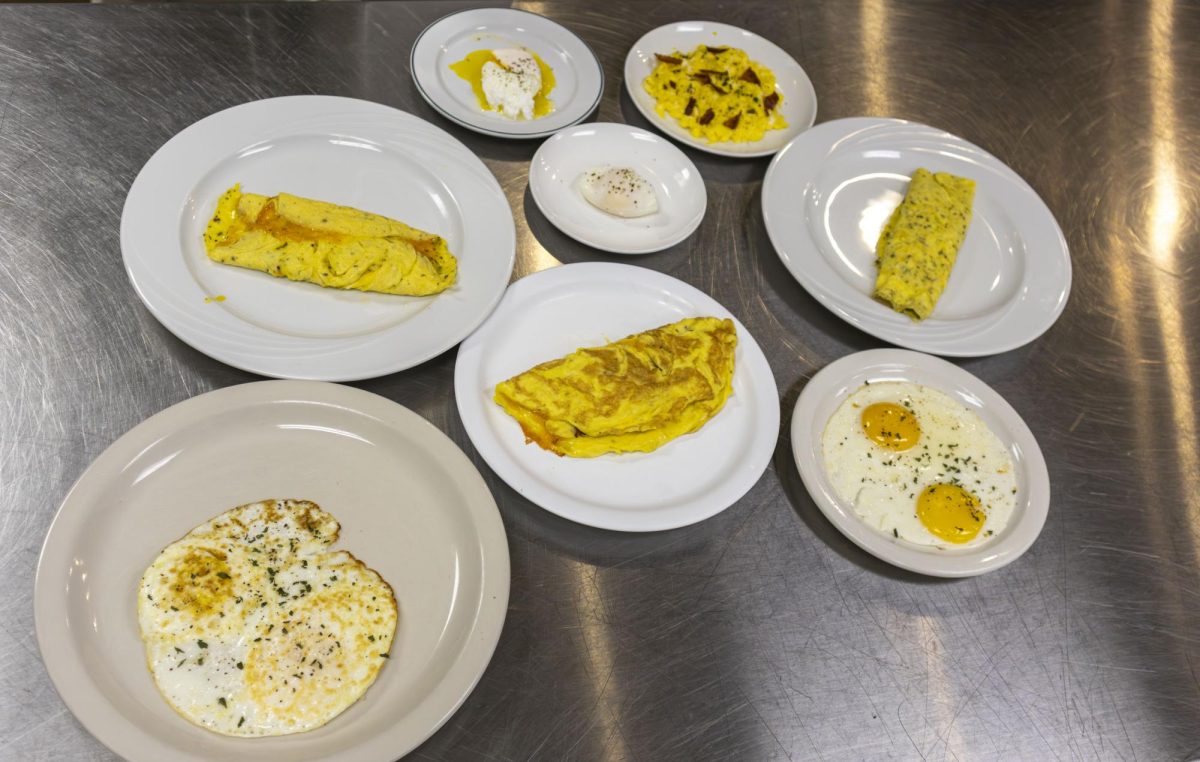If you haven’t noticed, the Downtown Milwaukee Campus now has three different garbage receptacles. One is for recycling of aluminum, glass and plastic, another for plain trash that has been food-soiled, and the last is for biodegradable products.This type of waste is organic matter in decay. But it can be put to use for conditioning and fertilizing the earth for growing crops.
The logic behind this proposal is to save efficient landfill space for the future, safely. MATC Chief Financial Officer and compost advocate, Mike Sargent, reasons: “The whole idea behind this is to reduce our carbon footprint. The goal is to be as sustainable as we can and extend the life of a landfill.”
Biodegradable recycling, or composting, can extend the life of a landfill in three ways. It reduces the size of garbage to one-fifth of its original size. Gas used by
landfill-bound sanitation trucks would be saved. And effective compost management eliminates poisonous methane gas.
Compost management begins within a large unit called a “vessel” in the T Building of the Downtown Milwaukee Campus. This vessel houses what Sargent calls an earth tub. Biodegradable products decompose by evaporation in the closed container; its air is filtered and vented outside from the T Building.
What can be saved after compost management is done is then transported to Mequon Campus’ Horticulture Department. The final result is artificial potting soil.
UNC-Charlotte has been successfully executing a version of compost recycling for several years now, and at least one hundred campuses across the country are beginning to follow suit. Sargent maintains our college has been a state eco-leader by example, sharing information with the likes of the Bradley Center and Lakeshore College.
Nicole Gil, a first-year Anesthesia Technology student, believes that what MATC is trying to achieve is, “a difficult measure to apply without much finance. No organization could sort these things with the labor available.”
She is not the only student to feel this way. Liberal Arts major Andrew Overson expressed the need for a lot of money to keep the recycling of compost running. “I’d like to see how many people after (March 15) would still be using the (receptacles). This college has too many other glaring problems to be dealing with to be noted as a fore-runner” in going green.
But there are a few students willing to act environmentally. Brandon Rivera is a second-year student in Anesthesia Technology as well. “We all have to pitch in with this, or little will happen.

